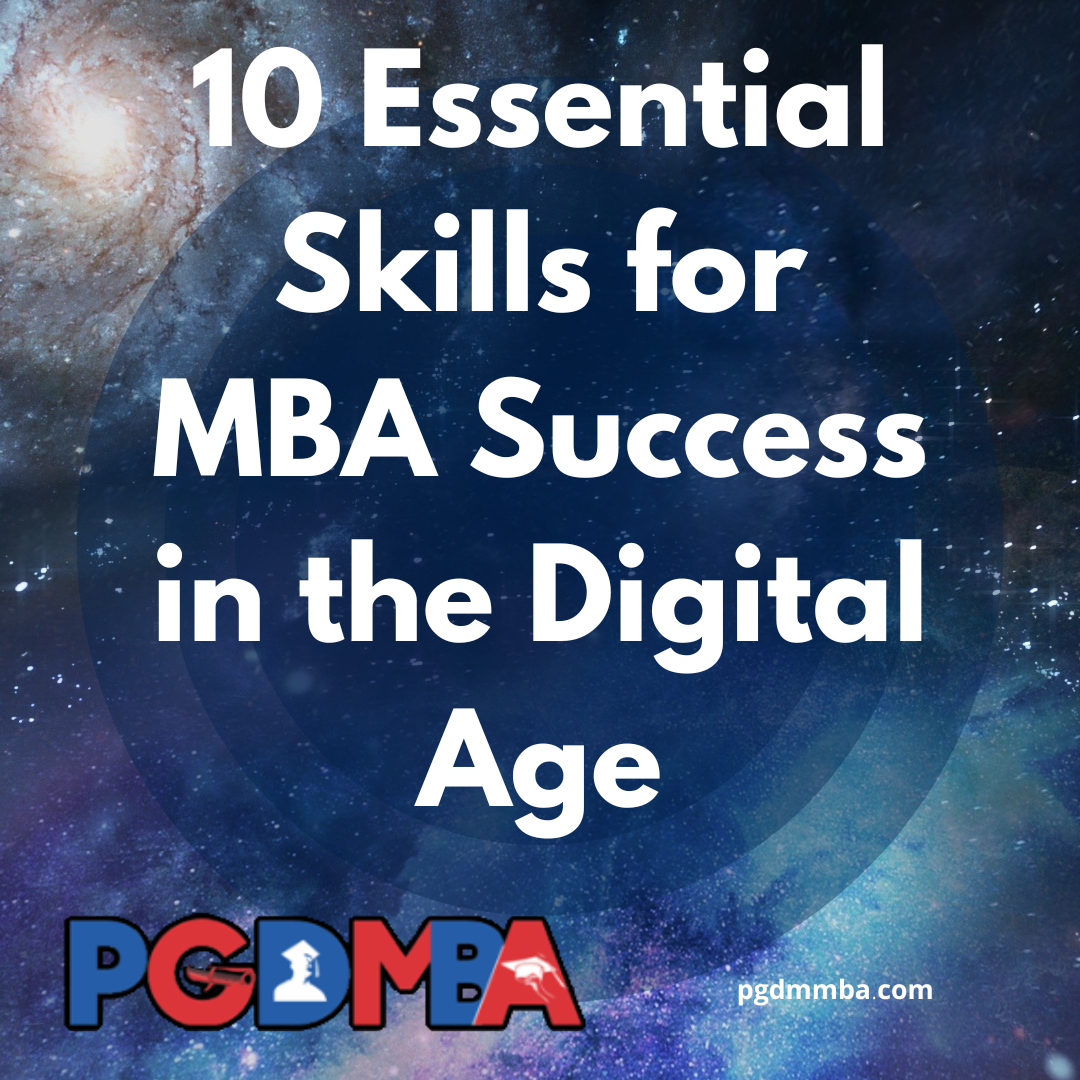In today’s rapidly evolving business landscape, the digital age has brought forth unprecedented opportunities and challenges for MBA graduates. To excel in this dynamic environment, it is crucial to possess a specific set of skills that go beyond traditional business acumen. In this article, we will explore the ten essential skills for MBA success in the digital age, helping you navigate the complexities of the modern business world and stand out as a competent and agile professional.
- Digital Literacy: In the digital age, having a solid understanding of technology is imperative for MBA graduates. Being digitally literate involves being familiar with various software applications, data analytics tools, and emerging technologies such as artificial intelligence and blockchain. This skill enables you to leverage technology to enhance decision-making, optimize processes, and stay ahead of the competition.
- Data Analysis: With the proliferation of big data, the ability to analyze and derive actionable insights from complex data sets is invaluable. MBA graduates need to possess strong analytical skills to effectively interpret data, identify patterns, and make data-driven decisions. Proficiency in statistical analysis and data visualization tools is vital for leveraging data to drive business growth.
- Strategic Thinking: In the digital age, the business landscape is characterized by constant change and disruption. MBA graduates must develop the skill of strategic thinking to anticipate market shifts, identify new opportunities, and formulate innovative business strategies. The ability to envision the bigger picture and think critically will enable you to navigate uncertainty and create a competitive advantage for your organization.
- Adaptability: Adaptability is a key skill for success in the digital age, as technology and business models continue to evolve rapidly. Embracing change and being open to new ideas and approaches are essential. MBA graduates who can quickly adapt to new technologies, market trends, and organizational structures will thrive in this fast-paced environment.
- Leadership: Leadership skills are paramount for MBA graduates aiming to succeed in the digital age. Effective leaders inspire and motivate teams, foster collaboration, and drive organizational growth. Developing leadership qualities such as effective communication, emotional intelligence, and the ability to influence and empower others will help you lead in the digital era.
- Global Business Acumen: In an increasingly interconnected world, MBA graduates must possess a global mindset. Understanding international markets, cultural nuances, and global business trends is crucial for identifying new growth opportunities and managing multinational teams. Developing cross-cultural competencies will enhance your ability to navigate global business challenges.
- Creativity and Innovation: Innovation is a driving force in the digital age, and MBA graduates must embrace creativity and foster an innovative mindset. The ability to think outside the box, generate novel ideas, and develop innovative solutions is essential for staying ahead of the competition and driving business transformation.
- Communication Skills: Strong communication skills are vital for MBA graduates to effectively convey ideas, build relationships, and influence stakeholders. In the digital age, communication extends beyond traditional methods to include virtual collaboration, remote work, and digital platforms. Mastering both written and verbal communication, as well as digital communication tools, will enhance your effectiveness as a business leader.
- Entrepreneurial Mindset: An entrepreneurial mindset is crucial for MBA graduates in the digital age, regardless of whether they start their own ventures or work within established organizations. This mindset involves being proactive, embracing risk-taking, and seeking out opportunities for innovation and growth. Having an entrepreneurial spirit will enable you to identify and capitalize on emerging trends and drive organizational success.
- Continuous Learning: In the rapidly evolving digital landscape, the learning journey does not end with an MBA degree. Continuous learning is essential for MBA graduates to stay updated with the latest trends, technologies, and industry best practices. Cultivating a growth mindset and seeking out learning opportunities will ensure your skills remain relevant and enable you to adapt to future changes.
Conclusion: The digital age has revolutionized the business world, requiring MBA graduates to possess a unique skill set to thrive in this environment. By developing these ten essential skills—digital literacy, data analysis, strategic thinking, adaptability, leadership, global business acumen, creativity and innovation, communication skills, entrepreneurial mindset, and continuous learning—you will position yourself as a competent and successful MBA professional in the digital age. Embrace these skills, and you will be well-prepared to navigate the challenges and seize the opportunities of the ever-changing business landscape.


